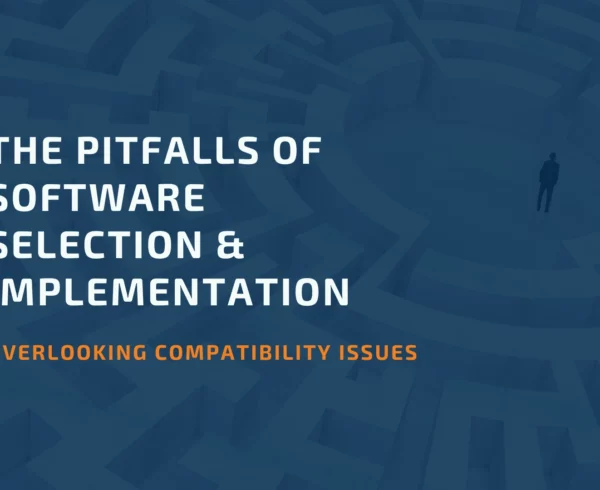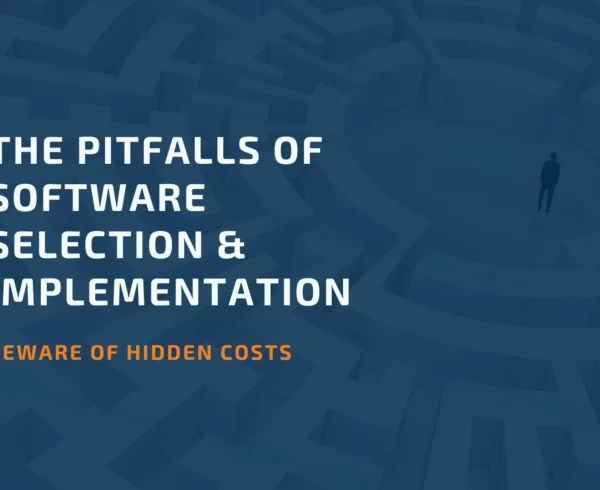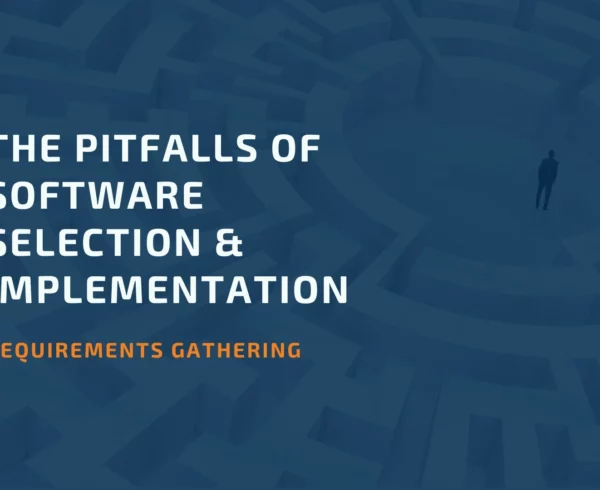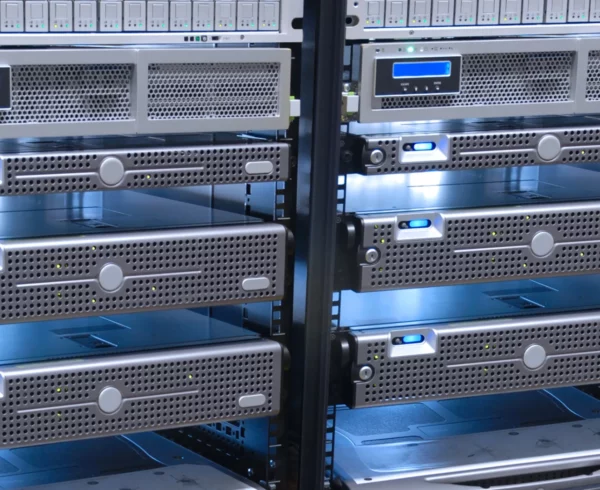Choosing the right CRM/ERP system for your organization is a critical decision that can significantly impact your business operations. It’s important to take the time to identify and assess your specific requirements to find a system that meets your needs and goals and can deliver the result you are looking to achieve.
Here are some tips to help you make an informed decision when choosing a new CRM/ERP.
Assess Your Current Processes
By identifying areas where your current processes are lacking, you can pinpoint where a CRM/ERP system could help streamline operations and improve efficiency. For example, if you are currently struggling with managing customer data or tracking sales leads, a CRM could provide a centralized location for storing and managing that information. Likewise, if you are experiencing inefficiencies in your supply chain or inventory management, an ERP could provide tools to help better track and manage those processes.

Vendor Options
It is critical to research different vendors and their offerings and consider several factors to find the best fit for your organization’s needs. Pricing is an important factor, as vendors may offer different pricing models or have additional costs associated with their software. Determining a budget and deciding which vendor fits in it is essential.
Another important factor is scalability, as your organization may need a system that can grow and adapt as your business expands. Also, ease of use is a crucial factor to consider. Your employees may not adopt one that is difficult to use or understand, which can decrease efficiency. It’s also important to consider customer support, integration with other software, and the level of customization the system offers.
Integrations
Ensuring your selected CRM/ERP can integrate with other systems and tools your organization already uses is essential. Integrating a new CRM/ERP system with existing tools and software can streamline processes and improve efficiency by eliminating the need to transfer data manually between different systems, reducing the chances of errors and inconsistencies in the data. This can save time, reduce the risk of data loss, and increase the organization’s overall efficiency.
Test the System
Before making a final decision on a CRM/ERP, it is a good idea to thoroughly test it to ensure it meets your organization’s needs and is easy for your employees to use. A great way to test it is to do a proof of concept, where a small group of employees can use the system in a simulated environment, giving you an idea of how it works in real-world scenarios. You will be able to identify any issues or concerns that may arise, allowing you to address them before fully implementing it.
Get User Feedback
Gathering employee feedback to understand if it meets their needs will give you insight into how to use it more effectively. Employees using the system daily have a valuable perspective and can provide useful feedback on its usability, ease of navigation, and if it meets their needs. Identifying any issues or concerns that may arise with it this way will allow you to address them before fully implementing the system.
Feedback can also help identify areas where further training may be needed, or modifications can be made.

Support and Maintenance
We recommend that you investigate the vendor’s support and maintenance options to ensure you can get the help you need if there are issues with the system. You must understand the level of support and maintenance offered by the vendor, including response times and availability, and the cost of support and maintenance. Some vendors may provide different levels of support, like basic, standard, and premium. Choosing the one that aligns with your organization’s needs is vital.
Look for Scalability
Scalability is crucial when choosing a CRM/ERP system, and you must ensure that the one you select can grow with your organization and accommodate your future business needs. It should be able to handle more data, more users, and more complex processes. It’s important to check with the vendor if it can be scaled up or if there are any additional costs associated with scaling. The system should also be flexible and customizable to adapt to the organization’s evolving needs.
Evaluate Security
The level of security it offers to protect sensitive customer, and business data is another thing to note. With the increasing number of cyber threats and data breaches, ensuring the system has robust security measures to protect your organization’s data is crucial. Features like the encryption of sensitive data, multi-factor authentication, and regular security updates are a few examples. Check if the vendor has any compliance certifications, such as SOC 2, ISO 27001, or PCI-DSS, as they indicate that the vendor has met certain security standards.
Consider Mobile Access
With more employees working remotely, it’s important to have a CRM/ERP system that can be accessed from anywhere and on any device. A cloud-based CRM/ERP is the most suitable option. It can be accessed from any device with an internet connection, making it easy for remote employees to access and work on the system seamlessly. So, checking with the vendor if the system is cloud-based and offers employees mobile access is important. Also, take note if it provides collaboration features, such as shared calendars, task management and project management tools that can help employees to work together effectively, even when they are working remotely.
Check for Reporting and Analytics Capabilities
To run a successful business, accessing real-time data and generating reports is critical for making informed decisions about your business. It’s important to check with the vendor if the system offers reporting and analytics capabilities and can integrate with other business intelligence tools. Also, it’s important to check if it provides customizable reports and dashboards that can be tailored to your organization’s specific needs.

Review the Vendor’s Reputation and References
Working with a vendor with a good reputation and a track record of successful implementations is important, as a vendor with a good reputation will likely have a solid track record of delivering high-quality products and providing excellent customer support. Do thorough research on the vendor’s reputation, check for customer reviews, and ratings to get an idea of the vendor’s credibility. It’s also important to ask for references and check with other companies that have used the system to obtain confirmation of the vendor’s track record of successful implementations, which will provide valuable insights into the vendor’s ability to deliver it on time within budget, and to the expected quality standards.
Helping and guiding you to make the best decision for your organization is what our team at BHC Group does best. If you are thinking about implementing a new CRM or ERP system, give us a call and let’s get started.






